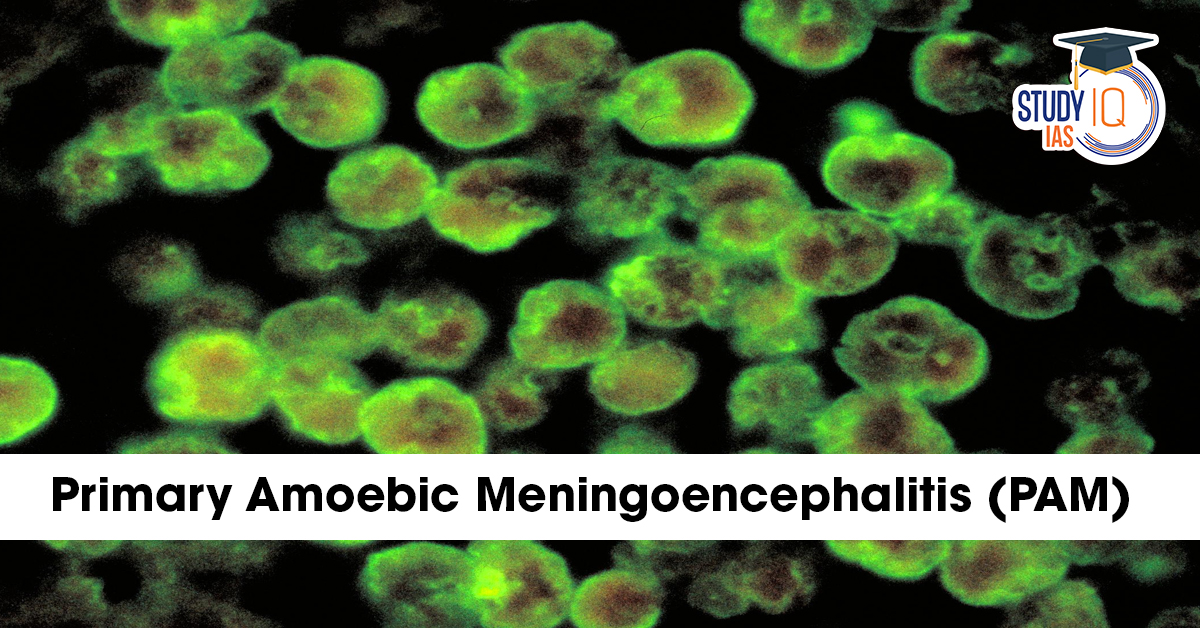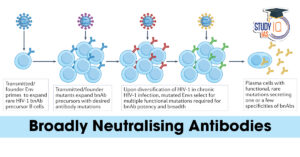Context: Kerala’s health department has issued an alert in Kozhikode district following the detection of three consecutive cases of the rare infection, primary amoebic meningoencephalitis (PAM), in the region.
Primary Amoebic Meningoencephalitis (PAM)
Primary Amoebic Meningoencephalitis (PAM) is a rare but severe infection affecting the brain and its protective membranes.
- Mortality rate is extremely high (over 95%).
- Usually affects young, active individuals.
Cause
- Triggered by Naegleria fowleri, popularly called the “brain-eating amoeba.”
- Found in warm freshwater and soil.
- Enters the human body through the nose.
Types of Amoebic Encephalitis
- PAM: Caused by Naegleria fowleri. Rapid onset, often fatal within days.
- GAE (Granulomatous Amebic Encephalitis): Caused by Acanthamoeba species and Balamuthia mandrillaris. Progresses slowly but is equally lethal if untreated.
Transmission
- Present in shallow surface waters, hot tubs, spas, and poorly maintained swimming pools.
- Infection occurs when contaminated water enters the nose (during diving, jumping, or swimming).
- The amoeba travels to the brain via the nasal passages.
Symptoms
- Early: sore throat, headache, forehead pain.
- Later: nausea, vomiting, high fever, hallucinations, and confusion.
Treatment
- Early detection and rapid administration of specific antibiotics may help.
- Despite treatment, recovery is very rare.


 Advanced Air Defence Radars: Types, Comp...
Advanced Air Defence Radars: Types, Comp...
 Ion Chromatography, Working and Applicat...
Ion Chromatography, Working and Applicat...
 Broadly Neutralising Antibodies (bNAbs):...
Broadly Neutralising Antibodies (bNAbs):...

























